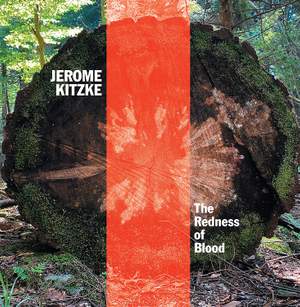Jerome Kitzke (born 1955) has described himself as being as much a storyteller as a composer, and that description makes sense. Throughout his music there is a strong dramatic, narrative, theatrical component. Performers shout, sing, move and dance, often as though possessed by the music. An obvious ancestor here is Harry Partch, and though Kitzkes music does not use just intonation, it projects that corporeal quality that this predecessor valued as essential.
The pieces on this disc make for intersecting pairings. There are two works for a pianist who vocalizes and produces sound beyond the keyboard (Bringing Roses With Her Words [2009] and There Is a Field [2008]). There are two works that are portraits of individuals. There are two ensemble pieces that are idiosyncratically theatrical (For Pte Tokahewin Ska [2015] and The Redness of Blood [199495]). Listening to them in sequence, they begin to feel like a multi-movement work about life that culminates in The Redness of Blood, the longest and most substantial piece of the program.
On a first hearing, for some more accustomed to the complexities of modernist practice, Kitzkes music may sound somewhat simple. Conversely, those more used to the open spaces of minimalism, or the grand gestures of neoromanticism, may find the music too mutable as it morphs, quicksilver-like, through an invigorating stream of consciousness. The fact that this music does not fall easily into any -ism is a tribute to its individuality, and its strength. Ultimately, the music has the quality of a crazy kaleidoscope, tumbling from one moment to another, the sonic palette constantly refreshed.



